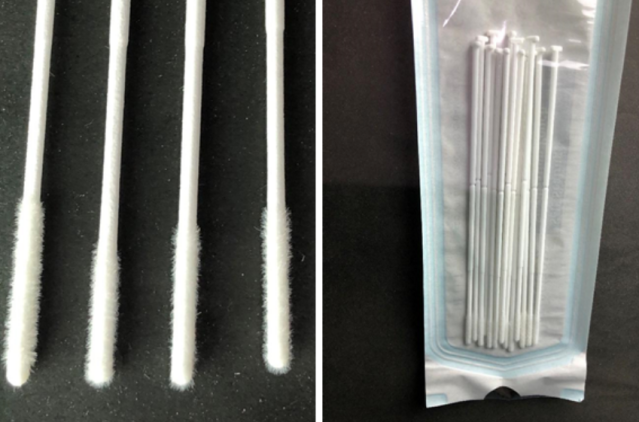
The complexities of constitutional federalism have resulted in businesses balancing differing federal and state measures and directions as a result of COVID-19 measures, according to the Real Media Collective (TRMC) general manager of IR, policy and governance Charles Watson.
Watson says they are all similarly worded, but have variable meanings depending upon the jurisdiction in which they were enacted.
“From a national perspective, this year has reiterated the breadth of critical services and products our industry provides the community. Further, this year has evidenced the proactive nature of our industry through implementing COVID related workplace safety protocols early and quickly. These factors helped to ensure our industry would continue to operate on a national basis throughout the year,” he said.
“However, advising our industry has and continues to be a case of different conversations depending upon the location of the business.
“This has been one aspect of events this year that has caused some confusion for both employers and employees. Therefore, it is worth considering some aspects of the differing workplace requirements that have and continue to apply to our industry on a state and territory basis.”
Watson outlined the differences across the states, which include:
Victoria
From this week, Victorians saw some easing of general restrictions on movement and certain workplaces (outdoor maintenance and renovations, personal therapy providers, outdoor commercial photography, car washing businesses, and hairdressers) have been allowed to reopen.
These steps came with a forecast of further easing of restrictions from 1 November.
Under the permitted work premises list those additional businesses are able to operate under a COVIDSafe Plan and a ‘Permitted Work Permit’ if employees are required to attend a worksite.
NSW
Watson said there has been recent talk in the NSW media about having employees who have been working from home to return to their workplaces. He mentioned that such statements have caused some confusion and were primarily directed at state public servants and government agency employees.
“Businesses in NSW are reminded that the current ‘Gathering and Movement Public Health Order’ continues and requires that an employer must allow an employee to work at the employee’s place of residence if it is ‘reasonably practicable’ to do so,” Watson said.
“Although this order doesn’t prohibit an employer from requiring an employee to attend the workplace it is a balancing act. Essentially, if an employee does not need to operate from the workplace they should continue to operate from home at this time.
“Although certain NSW businesses are mandatorily required to register as COVIDSafe (gyms, hospitality venues, and places of worship), all businesses are strongly encouraged to implement a COVID-19 Safety Plan to minimise the risks of COVID transmission on their premises.”
Tasmania
Tasmania continues to have restrictions on gatherings and the number of people permitted in a workplace. Under current restrictions, and although it is not compulsory, employees are ‘encouraged’ to continue to work from home if possible.
Queensland
Although certain businesses (such as hospitality, leisure and public institutions) in Queensland are considered to be at a higher risk, they are able to operate under a range of restrictions. However, the Queensland Government recommends all businesses operate under a COVID Safe management plan so as to minimise associated risks and respond to any occurrence of COVID.
Western Australia
“Specific public sporting, hospitality and entertainment venues continue to have variable capacity and distancing rules in place, otherwise our west coast family are approaching business as normal. However, the WA government continues to expect businesses of all kinds, to apply COVID Safety Guidelines and ensure their COVID Safety Plan is kept up to date,” Watson said.
South Australia
A range of defined public activities (sporting, hospitality, recreation) continue to require a COVID Safe Plan, and some businesses (larger events and activities with drinking and dancing) are required to have the additional COVID Management plan approved by SA Health.
Otherwise workplace COVID Safe Plans are voluntary for SA businesses, Watson said.
ACT
The ACT’s Public Health (Emergency) Declaration remains in place until 19 November 2020 and requires certain business types (such as hospitality, personal services and organised sports) to operate with variable attendee numbers.
“Otherwise, the ACT Public Health ‘encourages’ all business to operate with such a COVID Safety Plan to minimise risks,” Watson added.
Northern Territory
Variable restrictions apply for events and gatherings depending upon the number of attendees, otherwise businesses are able to operate under a specifically relevant COVID-19 Safety Plan lodged with the territory government.
“Whether a COVID Safe Plan remains mandatory or is now only recommended, they provide all employees with direction and assurance as we work towards ‘COVID Normal’ on a national basis,” Watson mentioned.
“We urge you all to remain vigilant about your respective workplace health and safety and undertake regular communications with your teams, including any offsite workers, on any amendments to company practices.”
Comment below to have your say on this story.
If you have a news story or tip-off, get in touch at editorial@sprinter.com.au.
Sign up to the Sprinter newsletter



